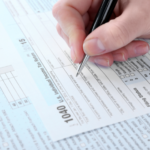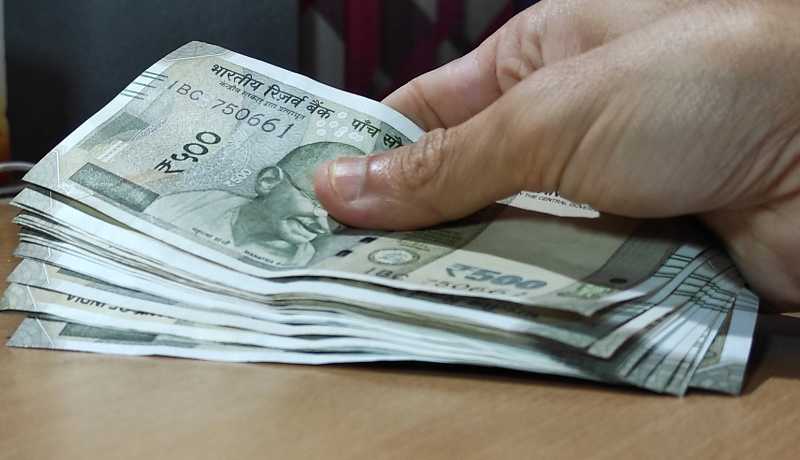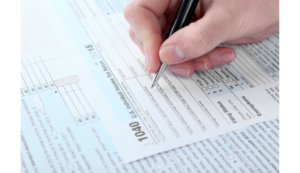In this article we will discuss about the certain cash transaction limits, as per income tax Act, 1961.
As per the Income Tax Act in India, cash transactions above a certain limit are not allowed. The limit varies depending on the type of transaction. The government has set various limits on various limits on cash transactions to tackle black money. Paying or receiving cash in excess of these limits can be punishable with penalty of up to 100 percent of amount paid or received.
In this article, we will be understanding 10 such transactions which have been restricted in the income tax act specifically. Here are the details:
1. For Cash Receipts:
As per Section 269ST of the Income Tax Act, no individual can receive an amount of Rs. 2 lakh or more in cash from a single person in a day or in relation to a single transaction or event.
Non-compliance of the Section 269ST of the Income Tax Act, 1961 attracts a penalty that is equal to the transaction amount that resulted in violation. This means that if you pay ₹2,65,000 in cash under any of the provisions of Section 269ST, you may be liable to pay a penalty of ₹2,65,000.
2. For Cash Payments:
As per Section 40A(3) of the Income Tax Act, any expense incurred by a business in cash exceeding Rs. 10,000 in a single day is not allowed as a deduction for tax purposes.
Any payment or receipt made in cash above this amount needs to be made through electronic means such as NEFT, RTGS, IMPS, or by cheque. When it comes to self-employed taxpayers, they cannot claim any expenditure over ₹ 10,000 if it’s paid in cash to a single person in a single day.
Note: The law establishes a higher threshold of ₹ 35,000 for payments given to a transporter.
3. For Specific Expenditure:
In case expenditure is allowed in respect of any liability incurred by a person in earlier years on accrual basis & if such expenditure is subsequently paid in cash/cross cheque/bearer cheque exceeding Rs 10,000 in a day then the deduction allowed earlier will be disallowed & payment will be chargeable to tax as income of the subsequent year as per Section 40A(3A) of the income tax act.
4. For Loan or Property Transactions:
As per Section 269SS of the Income Tax Act, no person can take or accept a loan or deposit or any payment towards immovable property of Rs. 20,000 or more in cash, either from a single person or in aggregate from a single person on a single day.
If the cash transaction is done beyond the limit, then a penalty of an amount equal under Section 271D of Income Tax Act will be imposed on a seller who accepts cash or refund of advance is made in cash by the seller of the property.
5. For Repayment of Loans or Property Transactions:
Cash transactions above Rs. 20,000 are not allowed for the repayment of loans. Any repayment made above this amount needs to be made through electronic means or by cheque.
However, this provision will not apply if amount accepted from government, any banking company, Post office or co-operative bank, any other institution, association or bodies which the CG may specify.
6. For Gift in Cash:
If you receive any cash amount in gift and the value of such gift is Rs. 50,000 or more, then such gift shall be taxable as Income From Other Sources u/s 56(2)(x). Also, if the Gift amount is going beyond Rs. 2 Lacs then it would also become a violation of Section 269ST and 100% penalty u/s 271DA shall also be levied.
7. For Capital Expenditure
Section 43 of the Act disallows the capital expenditure incurred in cash. Cash transactions above Rs. 10,000 for the purchase of assets are not allowed. This includes assets like property, machinery, and vehicles.
As per this section,, any expenditure incurred by the assessee for acquisition of any asset in respect to which a payment or aggregate of payments made to a person in a day, otherwise than by banking means, equals or exceeds ten thousand rupees, such expenditure shall be ignored for the purposes of determination of actual cost of such asset.
It simply means, if an assessee makes a payment of any amount equal to or exceeding Rs. 10,000/- in cash to any person in a single day for any expenditure towards acquisition of any asset, then such sum shall not be included in the cost of the asset, and the assessee will not be able to claim depreciation on such amount.
Therefore, now an assessee cannot make a payment of any sum of Rs. 10,000 or more in a day towards purchase of any fixed asset.
8. For Donations
Cash donations above Rs. 2,000 is not allowed u/s 80G. Any donations made above this amount need to be made through electronic means or by cheque only.
9. For Donations for Political Parties
If you made cash donations to political parties, then even if Rs. 1 is donated in cash, that will not be allowed. NO DEDUCTION at all shall be allowed u/s 80GGB and 80GGC for cash donations.
10. Health insurance premium paid in cash:
Any payment made in cash on account of premium of health insurance policy will NOT be allowed as deduction under Section 80D.
It is important to note that violating these limits can result in penalties and prosecution under the Income Tax Act. Therefore, it is advisable to conduct transactions through non-cash modes such as cheques, bank transfers, or digital payments.
Happy Readings!
Disclaimer: The information contained in this website is provided for informational purposes only, and should not be construed as legal/official advice on any matter. All the instructions, references, content, or documents are for educational purposes only and do not constitute legal advice. We do not accept any liabilities whatsoever for any losses caused directly or indirectly by the use/reliance of any information contained in this article or for any conclusion of the information.









